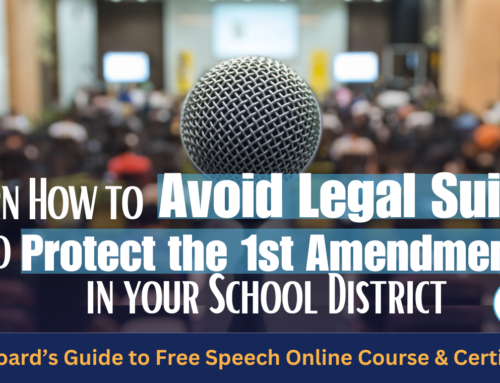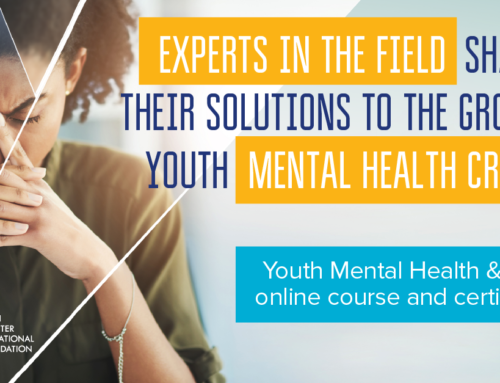
While clashes between school boards and parents have been getting a lot of national news coverage over the last couple of years, school boards simply aren’t one of the highlighted governing bodies in our political system.
School board elections aren’t typically exciting races with wide-scale fanfare and media coverage. The bottom line is that, even with the recent national attention, many people don’t know what a school board does.
Regardless of the mundane perception of school boards, they are vital to our society. When citizens, especially parents, narrow their focus and hone in on their local school board, local schools feel an almost immediate impact.
So, what if you decide to actually attend a school board meeting?
From offering school board members positive support to working for change in an area of concern, you can make a difference. If you attend a local school board meeting, what can you expect?
A Brief Overview
School boards are the front lines of educational policy and application. They oversee the local school system by establishing and enforcing education policies. From setting goals for the district to influencing which curriculum is standardized in the local schools, the school board holds a great deal of sway in the community.
Whether you want to voice opposition or support, parents should attend school board meetings. Community involvement is a vital piece of the education puzzle. Parents are taxpayers and have the right to communicate with and influence their local school board for the school district’s good.
An Ally, Not an Enemy
In most cases, the school board and the community work together for the students’ good. The Person County Schools website summarizes this symbiotic concept. “The most important responsibility of school boards is to work with their communities to improve student achievement in their local public schools. School boards derive their power and authority from the state.”
Note Person County’s last statement. In our American republic, it’s easy to charge into a meeting with the “you work for me!” mindset. Not only is this probably not the best approach (think flies with honey and vinegar), but it’s factually wrong in the case of a school board.
The West Plains School District in Missouri explains it this way, “The State Board of Education provides leadership and state level administration…[the state] has delegated much of the responsibility for education to the local board of education. Locally elected boards of education are political subdivisions carrying out a state function.”
Most states and their local school boards function along these same lines. While the school board may inadvertently “work for you” as an extension of the state, they answer to your state, not you as an individual. It’s good to remember the various lines of authority when addressing any governing body or individual for maximum results.
The local school board is made up of citizens from your community – many of them parents with children in the local schools themselves. When you choose to attend a school board meeting, remember that you likely all have the same overall goal—effective and safe schools for local kids.
Why Should You Attend?
There are 101 reasons not to attend a school board meeting. Maybe you’re tired, or your schedule is full. But are there any good reasons to attend?
For one thing, it shows that you’re engaged. It lets the board know that what they do and what the community thinks matters. If the board never hears from their local community, they assume they’re doing a good job and that parents are satisfied or apathetic. When the community participates, it offers encouragement to an effective school board and constructive feedback for a board that needs to address a problem.
Attending a local school board meeting also helps you develop a rapport with the board members themselves. You’ll discover which board members are effective, who has the right values and vision for your local schools, and get a finger on the pulse of your district. All this insight can help you understand the issues your schools are dealing with and help you in the ballot box next time you vote for school board members.
Protocol and Etiquette
Believe it or not, there are certain protocols for conducting yourself in a school board meeting. This isn’t just for the board members themselves but for visitors too! While there’s no ‘officially recognized,’ standardized code of conduct, common sense and general etiquette will go a long way toward keeping these meetings constructive and your listeners receptive to what you have to say.
However, individual states and districts may adopt a code of conduct (such as is seen here from the Arlington Central School Board). To familiarize yourself with how the meetings in your district are run, check out your school district’s local website (there should be school board info listed). There, you’ll find information including the agenda, time, date, and location for the next school board meeting, information about the board members themselves, and possibly the minutes from past meetings.
Perks of Observation
Still, even with this information, it’s a good idea to just attend a few meetings as a relaxed observer before diving right into addressing the room. Moms for America suggests, “One way to ease the apprehension is to find out when your school board meets and attend a meeting or two just to observe. You should be able to locate this information by visiting your school district’s website…When you attend meetings prior to speaking, you will build your confidence as you watch other parents standing courageously for their children. You’ll learn the format of the meetings and what to expect when you arrive to speak.”
Whether you wait till your fourth meeting or choose to jump in at your first meeting, when you address the board, ensure you’re polite, concise, and respectful. Common courtesy will get you a long way toward letting your voice be heard. Shouting or rambling rarely makes a good impression and isn’t practical. Coming prepared with a general outline of your concerns, bullet points, and facts/statistics will get your concerns across effectively.
Attentive and Patient
If you’re visiting your local school board meeting for the first time, your first impression will probably last. Observing quietly without being disruptive or overbearing is the best approach. Watch, listen and get a feel for the room. Your concerns may be addressed without you even needing to speak, so pay attention. It would be embarrassing to raise an issue that has already been addressed satisfactorily.
Don’t disrupt the meeting with disgruntled body language or sounds. Similarly, there’s no reason to disrupt the proceedings with rousing displays of support, either. Allow the agenda to flow uninterrupted. If you plan to speak, wait until the meeting is opened to visitors. Then follow the lead of others in attendance. Make sure you understand the pattern and protocols of your particular school board meeting before requesting to be recognized. If it’s your first time, it’s very common to be nervous. By observing first, you can address the board more confidently.
The XQ Institute reminds their readers, “Remember, the best introduction to your local school board is simply to attend a local school board meeting. You’ll learn a lot—and, equally important, you’ll show your concern. School boards function better when there are more committed people in the room.”
Common Mistakes
When individuals from the community attend school board meetings, it’s often because they’re passionate about a particular problem or issue in the schools. Passion is a good thing; it drives us to act when otherwise we might be complacent. However, passion can also overtake our better judgment and direct us to act in less than advisable ways.
It’s vital to remember that you’re a guest at the school board meeting. As a citizen, you have the right and even duty to participate for the good of your community. However, be sure to do so in an acceptable and courteous manner. Remember that there are proper and improper ways of addressing your concerns.
The Darrington School District politely reminds its fellow citizens of some basic rules to remember. “In order to permit fair and orderly expression of comment, the Board has provided this time to hear appropriate comments from anyone attending the meeting…The Board values and welcomes civil, respectful statements and clear, concise communications that inform its deliberations. The Board uses the public comment period as an opportunity to listen to citizen concerns, but not to debate issues or enter into a question-and-answer session.”
General Rules of Thumb
While this excerpt is for the Darrington School District specifically, their key points are generally good rules of thumb to follow in any district school board meeting. Let’s break them down and examine a few more points as well:
- Remember you’re a guest.
- Be respectful and concise.
- Be informative and productive.
- Don’t attempt to start a debate.
- Address the board, not the audience.
- Don’t ask the board specific questions.
- Don’t attack or submit a complaint about any specific board member.
- Follow any stated time allotments. If no specific time restraints have been given, keep your comments short to respect everyone’s time.
- Follow any other stated rules or protocols.
Take That Step!
Attending a school board meeting for the first time is a daunting experience. The good thing is that thousands of regular citizens and average parents have done it before you. It’s not as scary or confusing as it may sound!
Attending a meeting or two before choosing to speak yourself can offer confidence and an understanding of your board’s protocols. When you do decide to address the board, remember that common courtesy and basic facts go a long way toward your concerns being heard.
If you keep these simple tips in mind, you’ll be well on your way to letting your voice be heard in your local community! Just take that first step and attend your first school board meeting!




